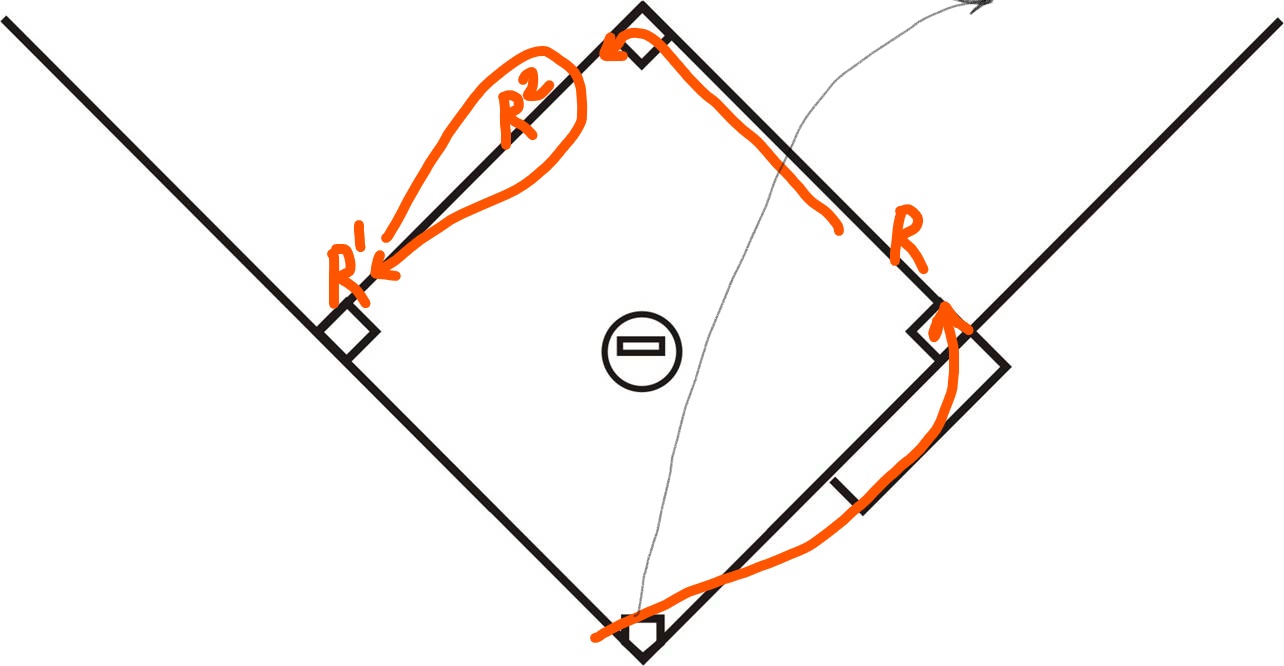Changed Country Conditions Exception Not Applicable to Number Barred Motions to Reopen

On June 29, 2022, the Fifth Circuit Court of Appeal published a precedent decision in which it concluded that:
- the exception to the 90-day time bar relating to motions to reopen under section 240(c)(7)(C)(ii) of the Act does not apply to the number limitation relating to motions to reopen under section 240(c)(7)(A) of the Act which permits the filing of only one motion to reopen;
- the proponent of a motion to reopen cannot rely on 8 C.F.R. § 1003.2(c)(3) to extend the changed-country-conditions statutory exception to the 90-day time bar for motions to reopen pursuant to section 240(c)(7)(C)(ii) of the Act to the statutory number limitation permitting the filing of only one motion to reopen; and
- a case under appellate review based on statutorily precluded relief (such as a number-barred motion to reopen) must be denied, not remanded regardless of the potential for other relief (such as cancellation of removal).
Injury to a Child Under Texas Law is a Crime of Child Abuse as Described U.S. Immigration Law

On June 7, 2022, the Fifth Circuit Court of Appeal published a precedent decision concluding that:
An offense involving injury to a child under § 22.04(a) of the Texas Penal Code is divisible with regard to its three protected classes of persons and is a “crime of child abuse” as described in section 237(a)(2)(E)(i) of the Act, based on application of the modified categorical classification approach, in spite of being overbroad on its face in comparison to the generic federal statute by criminalizing injury to an elderly person or a disabled individual as well as injury to a child.
Emmanuel Chukwuka Monsonyem v. Garland (June 7, 2022) No. 20-60952.
Establishing Amount of Loss Pursuant to Section 101(a)(43)(M)(i) of The Act

On June 7, 2022, the Fifth Circuit Court of Appeals published a precedent decision in which it determined that:
- The prison mailbox rule (i.e. that an inmate’s filing is timely if it is deposited in the institution’s internal mail system on or before the last day for filing and it contains a compliant certificate of service or evidence showing the date it was deposited and that the postage was prepaid) applies to pro se detainees in immigration proceedings; and
- a restitution order can be used to show the amount of loss to the victim in the absence of any contrary record evidence for the purpose of classifying an offense as an aggravated felony under section 101(a)(43)(M)(i) of the Immigration and Nationality Act, as amended.
"Unable to Control" Means "Complete Helplessness"

On June 3, 2022, the Fifth Circuit Court of Appeal published a precedent decision concluding that:
- To justify an asylum claim where private actors are the alleged persecutors, the asylum applicant must show that the government condoned the private violence or at least demonstrated a complete helplessness to protect the asylum applicant.
- Despite the fact that Attorney General Merrick B. Garland, on June 16, 2021, vacated previous attorney general decisions in Matter of A-B-, 27 I&N Dec. 316 (A.G. 2018) (now known as “A-B- I”) and Matter of A-B-, 28 I&N Dec. 199 (A.G. 2021) (now known as “A-B- II”), interpreting the “unable to control” standard to mean “complete helplessness” (as stated in A-B- I) accurately reflects the law of the fifth circuit. See Shehu v. Gonzales, 443 F.3d 435, at 437 (5th Cir. 2006) (government must condone persecution or “demonstrate complete helplessness”); Gonzales-Veliz v. Barr, 938 F.3d 219, at 233 (5th Cir. 2019) (quoting Matter of A-B-, 27 I. & N. Dec. 316, 337 (A.G. 2018) (A-B- I), vacated by Matter of A-B-, 28 I. & N. Dec. 307 (A.G. 2021) (AB- III).
Motions to Reopen and Reconsider Not Distinguished by Title

On May 24, 2022, the Fifth Circuit Court of Appeal published a precedent decision concluding that:
- An issue raised for the first time in a motion for reconsideration that could have been raised earlier has not been properly presented to the Board of Immigration Appeals ("BIA") and therefore does not satisfy the exhaustion requirement under section 242(d) of the Immigration and Nationality Act, as amended ("the Act").
- An Immigration Judge is authorized to interrogate, examine, and cross-examine an applicant pursuant to section 240(b)(1) of the Act, in spite of expressions of impatience, dissatisfaction, annoyance and even anger, so long as any such expressions are not due to extrajudicial sources or the Immigration Judge shows a deep-seated favoritism or antagonism that would make fair judgment impossible.
- In light of the totality of the circumstances, an Immigration Judge may rely on any inconsistency or omission to make an adverse credibility determination, even if they do not go to the heart of an applicant’s claim, and neither an Immigration Judge nor the BIA is required to accept an applicant’s explanation for the inconsistencies.
- For the purpose of distinguishing a motion to reconsider from a motion to reopen, the appellate court will look to the motion’s substance, not its label.
Adverse Credibility Finding Must be Based on Record Evidence

Administrative Fact Finding Not Subject to Judicial Review

Jurisdiction and Review of Special Rule for Battered Spouse or Child-based Motions to Reopen

On May 12, 2022, the Fifth Circuit Court of Appeal published a precedent decision in which it determined that:
- an appellate court retains jurisdiction under section 242(a)(2)(D) of the Immigration and Nationality Act, as amended ("the Act") to review, as a question of law, the BIA’s decision not to waive the one-year limitation for filing a motion to reopen pursuant to section 240(c)(7)(C)(iv)(III) of the Act ("Special Rule for Battered Spouses, Children and Parents");
- under the highly deferential abuse of discretion standard of review applied to motions to reopen, as articulated in Mejia v. Whitaker, 913 F.3d 482, at 488 (5th Cir. 2019), the BIA’s determination that the Petitioner failed to demonstrate extraordinary circumstances or extreme hardship to one or more of his children in order to waive the section 240(c)(7)(C)(iv)(III) of the Act one-year filing deadline was not “capricious, without foundation in the evidence,” or “irrational.” Mejia v. Whitaker, at 487 (quoting Gomez-Palacios v. Holder, 560 F.3d 354, at 358 (5th Cir. 2009)); and
- an appellate court lacks jurisdiction to review the BIA’s decision to deny a motion to reopen that is based on a request for a favorable sua sponte exercise of discretion.
Passing a Preceding Runner

According to the National Federation of State High School Associations ("NFHS") baseball Rule 8-4-2m, any runner is out when the runner “passes an unobstructed preceding runner before such runner is out.”
NFHS Baseball Rule 8-2-4 provides that “If a fair or foul batted ball is caught . . . each base runner shall touch his base after the batted ball has touched a fielder . . ..”
NFHS Baseball Rule 8-4-2i provides that any runner is out when the runner “does not retouch his base before a fielder tags him out or holds the ball while touching such base” in the situation described in NFHS Rule 8-2-4.Motion For Continuance Based on a Pending Visa Petition
Authority to continue or adjourn immigration court proceedings appears twice in immigration regulations:
- 8 C.F.R. § 1003.29 – “The Immigration Judge may grant a motion for continuance for good cause shown.”
- 8 C.F.R. § 1240.6 - “After commencement of the hearing, the immigration judge may grant a reasonable adjournment either at his or her instance or, for good cause shown, upon application by the respondent or the Service.”
EWI
.jpg)
In general, the art of cross examination is the art of evoking testimony that commits a witness to a specific set of facts or to a specific opinion, and then confronting the witness with established facts or previous statements or opinions that are inconsistent with the contemporaneous testimony of the witness.
However, like in routine communications with fellow humans in the course of daily life, all participants in any communication must share the same notion or understanding of the terminology utilized in the communication.Subjective Fear Supported by Country Conditions Insufficient to Prove Well-Founded Fear of Persecution

30-Day Filing Rule Relating to BIA Appeals is Subject to Equitable Tolling

Confirmation of Ketanji Brown Jackson
%20American%20Flag.jpg)
Blanket Rejection of All Testimony

A Defective NTA is a Valid Charging Instrument
.jpg)
Tennessee Money Laundering Statute - Divisible or Not?

Exhaustion of Administrative Remedies to Preserve Jurisdiction

Claims raised and lost before the Board of Immigration Appeals (“BIA”), without creating any new issue, have been exhausted within the meaning of section 242(d)(1) of the Act, thereby conferring jurisdiction for appellate court review.
An appellate court does not have jurisdiction pursuant section 242(d)(1) of the Act to consider claims alleging a new defect that the BIA never had a chance to consider; such as claims based on a wholly new ground for relief arising only as a consequence of the BIA’s error, claims that the Board engaged in impermissible fact finding, claims that the BIA applied the wrong standard of review, or claims that the BIA’s ruling on a properly presented issue breached a procedural requirement or the petitioner’s due process rights.Public Charge

Agreement to Make Public Unpublished BIA Decisions

Human beings seem to be wired or conditioned to readily believe bad news. It is common to hear people say: “That’s too good to be true.” However, I have never heard anybody say: “That’s too bad to be true.”
Based on a stipulation of settlement filed February 9, 2022, the Board of Immigration Appeals (“BIA”) has agreed to provide access to its unpublished decisions in an electronic reading room (i.e. a website formatted for public inspection pursuant to 5 U.S.C. § 552(a)(2)(A)). See document 72 filed in New York Legal Assistance Group v. The Board of Immigration Review and the Department of Justice (U.S. District Court, Southern District of New York) Case No. 18 Civ. 9495 (PAC).
This news might strike some as too good to be true, but nevertheless it apparently is true.
To view the complete settlement agreement copy and paste the following link in your internet browser: https://www.citizen.org/wp-content/uploads/72-Signed-stipulation.pdf?eType=EmailBlastContent&eId=f4497cb8-4bb6-47e0-8d45-62887ae34812

